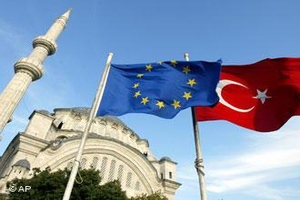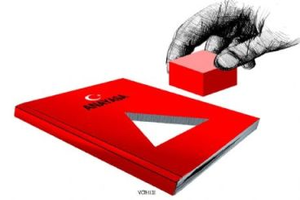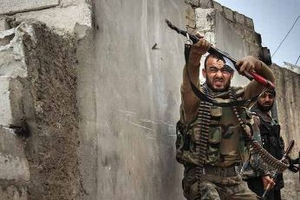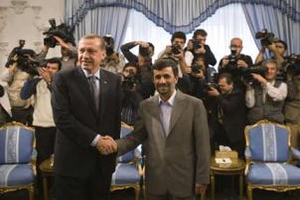Turkey-EU Relations Heat Up
by Richard Weitz (vol. 6, no. 5 of the Turkey Analyst)
After years of stalemate, recent months have seen renewed efforts to secure Turkey’s accession to the EU. French President François Hollande has adopted a more favorable position regarding accession than his predecessor. Following his election in 2012, Hollande’s administration advocated opening some of the eight chapters of the accession talks that were closed. Other EU officials have expressed concerns about the EU needing Turkey more than vice-versa. German officials have also adopted a more positive attitude towards Turkey’s accession drive. Meanwhile, Turkish officials are making moves, such as threatening to abandon the EU and seek membership in the Shanghai Cooperation Organization, presumably to give Ankara more leverage in the accession negotiations.

What It Will Take to End the Conflict with the Kurds: Can Turkey Transcend Turkishness?
by Halil M. Karaveli (vol. 6, no. 04 of the Turkey Analyst)
A settlement of Turkey’s Kurdish issue requires that the Kurds are satisfied and that the Turks are persuaded. Satisfying the demands of the Kurds will necessarily bring about a redefinition of the identity of Turkey. It will above all reverse the traditional role of the Turkish state, which historically has sought to regiment society; it would enshrine a whole new principle, making it the duty of the state to respect societal diversity and uphold societal freedom. Prime Minister Recep Tayyip Erdoğan may consider deleting references to Turkishness from the constitution, and to allow the Kurdish identity a greater space, but it is less clear that he would also agree to dilute the state’s and his own power.

The Arab-Kurdish Battle in Syria: Implications for Turkey's Standing
by Veysel Ayhan (vol. 6, no. 4 of the Turkey Analyst)
The battle over the Syrian town Ras al-Ain on the border to Turkey and the recent cease-fire agreement between the Syrian opposition and the Kurdish Democratic Union party (PYD) have major implications for Turkey, affecting its relations with the Kurds in Syria, and with parts of the opposition. The battle over Ras al-Ain has not only resulted in the Kurds seeing Turkey as their enemy, but has also led some Syrian opposition leaders to question the role that Turkey plays in their country. The standing of Turkey has been negatively affected as the notion that Turkey could be of assistance in ending the intensified ethnic, religious or sectarian strife that can be expected after the downfall of al-Assad has been dealt a blow at Ras al-Ain.

Turkey and Tehran: A Cold Peace
by Richard Weits (vol. 6, no. 3 of the Turkey Analyst)
Turkey and Iran continue to resist the strong trends driving them to renew their Cold War of previous decades. Thus far, Turkey and Iran have been able to cooperate on some issues even while they conflict on others. Though they engage in a proxy war in Syria and fight over NATO’s missile defense policies, Turkey and Iran have developed perhaps their closest economic ties in modern history, with Western sanctions squeezing out competitors and allowing Turkey to finally achieve a trade surplus when dealing with Iran after years of massive deficits.

The AKP's New Dialogue with Öcalan: A Process but Which Process?
by Gareth H. Jenkins (vol. 6, no. 1 of the Turkey Analyst)
On January 9, 2013, three female Kurdish nationalist activists affiliated with the Kurdistan Workers’ Party (PKK) were assassinated execution-style in the heart of Paris. They included Sakine Cansız, the doyenne of the Kurdish women’s movement and one of the original founders of the PKK. On December 28, 2012, Turkish Prime Minister Recep Tayyip Erdoğan had announced the beginning of a new dialogue with imprisoned PKK leader Abdullah Öcalan to try to put an end to the PKK’s 28 year-old insurgency. The timing of the Paris killings has meant that they have been interpreted as being linked to the dialogue; with Kurdish nationalists and Turkish government supporters each effectively accusing elements within the other of responsibility. Although both sides have called for the dialogue with Öcalan to continue, many Kurdish nationalists have serious doubts about the Turkish government’s sincerity, suspecting that Erdoğan’s main aim is to weaken and marginalize the PKK rather than address the underlying grievances that fuel its insurgency.







